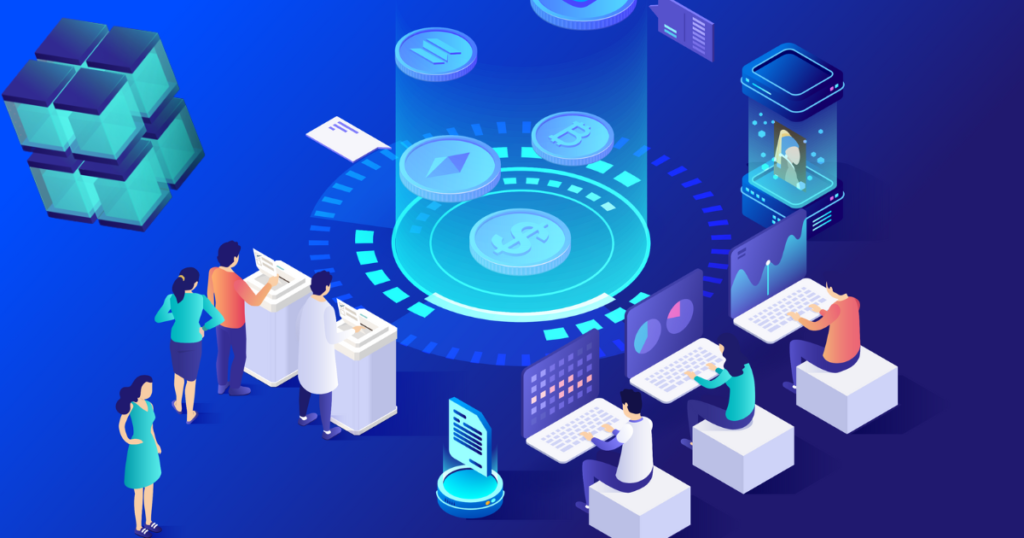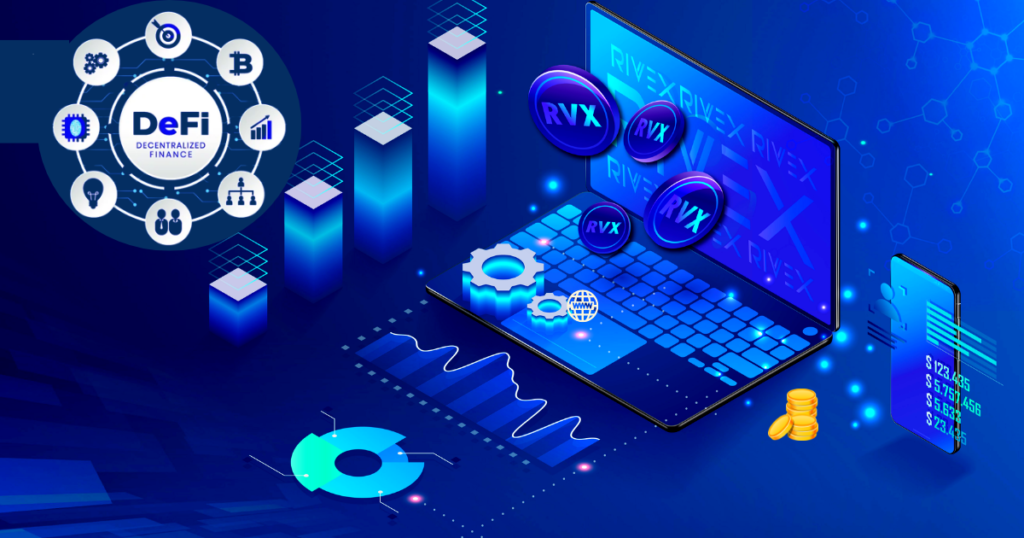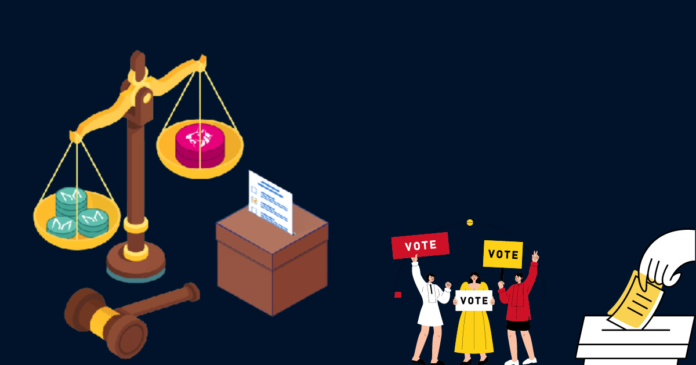Holders of governance tokens have the option to cast a vote on matters affecting how a blockchain project is developed and run. It’s a technique used by development teams to delegate decision-making authority to their communities. The project’s goals and interests of token holders are more closely aligned thanks to this decentralized governance approach.
In this article, we’re going to learn what governance tokens are, how they work, their pros and cons, what the future holds, and what my thoughts are on them.
What are Governance tokens?
A board of directors or a small group of people typically controls the decision-making process in traditional businesses. The boards of the largest firms typically have 10 or fewer members. They have a significant impact on how organizations are run. These directors can determine the company’s strategy, choose which initiatives to invest in, and nominate or fire key personnel.
An alternative to traditional organizational governance is represented by governance tokens. The approach the governance tokens stand for gives a more fair, decentralized, and transparent governance system and is typical for decentralized autonomous organizations or DAOs and decentralized finance or Defi. Typically, each token represents one vote. These coins are intended to unite the communities and ensure blockchain initiatives can grow successfully.

Government token functions
Using it is the main method for achieving decentralized governance in DAO, Defi, and decentralized application initiatives. These are frequently given to active users in recognition of their commitment and volunteerism.
To ensure the project’s strong development token holders in turn cast votes on important issues. Smart contracts are typically used for voting and the outcomes are automatically carried out. Maker DAO and Ethereum-based DAO that supports the crypto collateralized stablecoin DAI released one of the first governance tokens.
Holders of the maker or MKR governance token which powers the maker protocol make decisions. Each MKR token represents one vote, and the proposal that receives the most votes wins. Voting options for token holders include choosing team members, altering fees, and enacting new rules. Making Maker DAO’s stablecoin effective, transparent, and stable is the aim.
Another example is compounding a Defi system that enables users to land and borrow cryptocurrency. It allows its user base to vote on essential choices by issuing a governance token called comp. The distribution of tickets is based on the user’s on-chain behavior. In other words, if you lend and borrow more, you will earn more comp tokens over time. One comp token represents one vote just like maker DAO. Users can also authorize others to cast ballots using their tokens on their behalf. Of note, a compound released the network admin key in 2020. It means that without the use of any additional governance mechanisms, the project became wholly controlled by its token holders. Aave the Defi lending platform, uni swap, pancake swap, the Web 3 NFT community, Apecoin DAO, and the virtual world platform to Dcenterland are among the other significant issuers of governance tokens. The guidelines for how each project’s governance tokens function are unique.
According to various computation models, tickets are distributed among stakeholders such as the founding team, investors, and users. While some governance tokens can only vote on a select group of governance issues others can cast ballots on a wide range of subjects. Different governance tokens have different financial dividend potentials.
Governance tokens pros and cons
The advantages of government tokens are numerous. They can eliminate the conflicting interests that are frequently present in centralized control. The administration power is distributed to a large group of stakeholders through decentralized governance, which aligns the interests of users and the firm’s interests.
Another benefit of governance tokens is building engaged cooperatives and close communities. Every token holder is urged to vote and advance the project. One token can be the basis for fairer and more equitable decision-making because one token often equates to one vote. Each token holder can submit a proposal for a vote. There is a lower likelihood of fraud because each vote’s specifics are visible to everyone.
Whale problem
The whale problem is the most significant obstacle to governance tokens. Whales are individuals that own a sizable portion of a particular cryptocurrency. The largest holders of a cryptocurrency project’s governance token could sway the voting results in their favor if they control a sizeable fraction of the token’s overall supply. Projects must ensure that token ownership is equally dispersed and genuinely decentralized.
However, there is no assurance that the majority judgments are always the best for the projects even if governance tokens are distributed equitably and widely. Election procedures based on one person and one vote have a lengthy history and a mixed reputation. In other instances holders of governance, tokens have voted in ways that favor the founding teams and significant investors to the detriment of the larger community.
Plans for Governance tokens
As a result of their invention in the crypto realm, governance tokens may become more widely used in other industries. A decentralized internet can be created using governance tokens under the web3 movement. Other gaming sectors may use this governance model as Defi and DAOs gain popularity. Tokens for governance will keep developing to address issues as they arise. There might be new solutions to the whale issue or different approaches to improving the voting process.

Vote delegation techniques could change while fresh advances are still being made this area will probably get more complicated as time goes on. Potential legislative changes are another essential aspect that will affect the future of governance tokens. These tokens can be considered securities by some governments which might make them subject to stringent rules and limit their ability to operate.
Conclusion
What are my thoughts? Governance token development is still in its infancy. Many Defiant DAO projects have benefited from their help as they have proliferated. These tokens are the foundation of decentralization since they can vote on how the projects are managed. As long as the tokens are distributed fairly among the community members the one-ticket one-vote approach puts users and the community at the center.
Future growth of governance tokens is highly possible. To name just a few industries, games, web3 initiatives and user-owned networks could all use governance tokens to create more dynamic and decentralized ecosystems. I hope you have a better understanding of governance tokens and how they work. As I always say there’s no enjoyment in what one knows unless one has someone to share it with.

